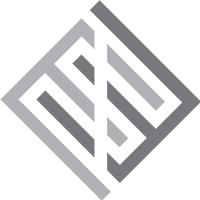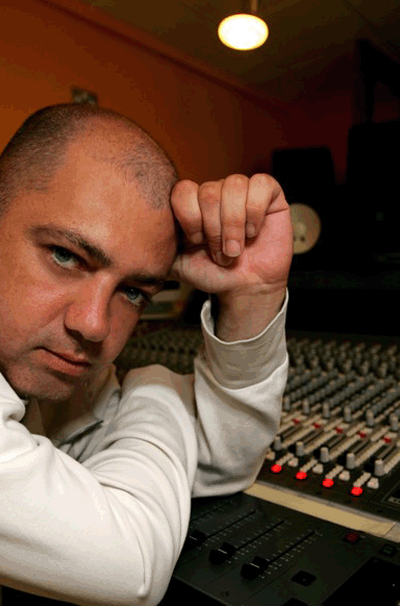Etch

Analogue-modelled filtering device
View more info
Matt Lange is an electronic musician, DJ and recent Los Angeles resident. His style of production is synonymous with attention to detail, precision, and musical craftsmanship, all without losing sight of emotional impact. Matt's recent releases through Anjunadeep have been supported by many prominent figures in dance music, including Richie Hawtin, John Digweed, Sasha, Above & Beyond, and Annie Nightingale to name a few. Around 2009, BT also hand-picked Matt as a co-programmer and to engineer the critically acclaimed, Grammy-nominated album "These Hopeful Machines".
Matt's recent accolades include delivering official remixes for pop superstar Usher as well as the Halo 4 video game soundtrack, co-writing/producing acts including VersaEmerge (Fueled By Ramen/Atlantic) and Glenn Morrison — for whom he earned a Platinum record — and composing and producing original music for the newest Internet Explorer TV and web advertisement. He has also just completed a film score for Fox Digital's forthcoming ETXR.
FX: How did you get started in music production?
ML: I was playing in a band in high school and I started recording demos on my laptop with an old Behringer V-Amp and programming drums in fruity loops to accompany what I was writing. Ultimately I ended studying at Berklee College of Music for music production and sound design. It all went from there...
FX: You made the move from NYC to LA two years ago? How's that been going for you? What are the biggest differences in the music scene?
ML: I really love LA. I came out here for the first time about 3 years ago for a gig and pretty much immediately fell in love with the city. The general laid back attitude of everyone, the weather, the fact that you can be on the beach or in the mountains within 30 minutes, etc... It's hugely inspiring for me. As far as the music production circuit goes, nothing really competes with LA as most artists are out here as well as most writers, so many other producers - it's really the hub of music production in the states.
FX: Which FXpansion products are you using and how are you using them?
ML: I use Bloom and Etch the most. I like Bloom for creating interesting modulating delays that can really have a unique character. Etch is a great filter for sound design with all the different kinds of filter types, distortion, modulation destinations and modulators. Very powerful plugins.
FX: How has music software in general affected the way you make music?
ML: Greatly! I started on software before I ever got into hardware for music production, so I'm heavily indebted to it. I try to stay out of the box as much as I can when I'm writing, but as soon as it comes down to the editing, mixing, sound design - I couldn't live without it.
FX: What are your favorite pieces of studio hardware?
ML: The newest toy is a little modular synth I've put together. It has a few modules from companies like Make Noise, Mutable Instruments, Pittsburgh Modular and others. I find it very inspirational to create all these unexpected happy accidents, as well as more traditional synthesizer type sounds which just sound better than most other synths. Not all sine waves were created equal. I'd be lying if I said my favorite piece of hardware isn't my Eventide DSP4000, however. That thing ends up on literally everything I do. It's my favorite reverb and fx processor ever. After that, my guitars and my Rhodes. It's so easy to get stuck in the box with all the plugins available now, but nothing inspires me the same way as physically touching strings or keys.
FX: Who are your biggest influences when it comes to producing and sound recording/ mixing?
ML: They're a bit all over the place, but I pull a lot of inspiration from artists such as Richard Devine, Telefon Tel Aviv, Devin Townsend, and Calyx & Teebee. All for different reasons.
FX: Where does the point of inspiration come in for a track?
ML: Honestly, as cliche as it may sound, anywhere. It could be from any random sound, a walk in the hills, a song that strikes you in just the right way, personal experiences, etc.
FX: Do you have any tips or tricks you would like to share?
ML: Nothing pays off more than dedication and persistence. My Dad used to say "It takes 7 years to become an overnight success." I've found this to be fairly true.
FX: What projects are you working on and what can we expect from you for the rest of 2014?
ML: Right now I'm focusing pretty much entirely on me for the first time in 2 years. It's a really great and liberating feeling after spending so much time working on other artists' albums. I'm very much in the process of refining and rediscovering my sound and it's been truly rewarding. On top of that, I've been gigging a bit more again, and it's been great to travel again, meet so many people, and play my music for some really great crowds.
Interview: October 2014

Analogue-modelled filtering device
View more info
Creative delay and diffusion effect
View more info
facebook.com/mattlangeaudio soundcloud.com/mattlange witter.com/mattlange

FXpansion caught up with Steve Mac at Future Music Producer Sessions 2013...
View artist interview

FXpansion caught up with Sharooz at Future Music Producer Sessions 2013.
View artist interview
THANKS FOR SIGNING UP
WELCOME TO THE FXPANSION COMMUNITY!